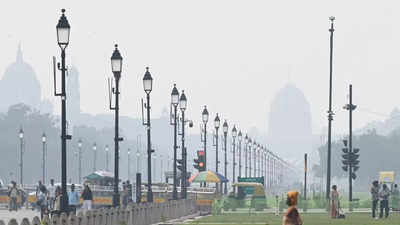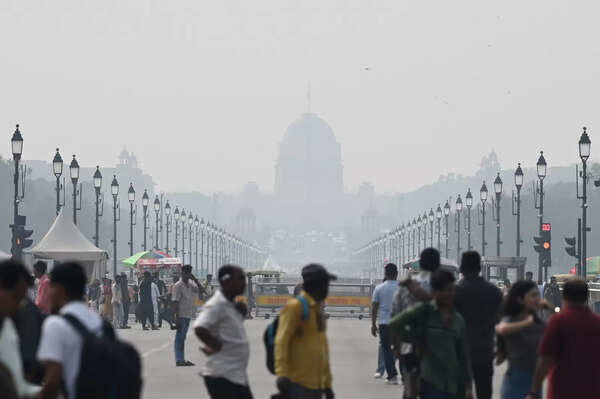- News
- City News
- delhi News
- Haze blankets Delhi skies as stubble burning season begins in 'neighbourhood'
Trending
Haze blankets Delhi skies as stubble burning season begins in 'neighbourhood'
Delhi's air quality has declined, with several areas recording 'poor' AQI levels amid the onset of stubble burning season. A high-level task force reviewed anti-pollution measures, stressing the need for electric vehicles and stricter enforcement of plans. The transport sector remains a major contributor to the city's pollution.

A haze was seen in some parts of Delhi on Tuesday at Karyavaya Path. (Photo credit: Rajesh Mehta)
The national capital Air Quality Index (AQI), recorded at 3 pm stood at 169. The PM2.5 levels in New Delhi are presently 5.9 times higher than the WHO's recommended 24-hour air quality guideline value.


According to experts, the instances of stubble burning are expected to increase in October, following the retreat of the monsoon season. The practice of setting fire to crop residue after harvest continues to be a prevalent issue in the region.
Meanwhile, the Decision Support System (DSS), which has resumed operations for the upcoming winter season, estimates that the transport sector in Delhi will contribute approximately 16% and 13% to the city's air pollution on Monday and Tuesday, respectively.
For the 2023-24 winter season, DSS has received an updated emission inventory from 2023, which is expected to enhance the accuracy of its pollution source forecasting. The previous inventory used by DSS was last updated in 2018.
Among the various sources affecting Delhi's air quality, the city's transport sector is currently the most significant contributor.
Earlier, on Monday P K Mishra, the principal secretary to the prime minister, reviewed the readiness of stakeholders to tackle air pollution in Delhi-NCR during winter and emphasised the urgent need to transition to electric vehicles and strictly implement the air pollution control plan.
Chairing a high-level task force meeting at the Prime Minister's Office, he instructed the chief secretaries of Punjab, Haryana, and Uttar Pradesh to rigorously enforce action plans to prevent stubble burning, fully utilise crop residue management (CRM) machines and support small industries in the economic use of paddy straw.
Senior officials, including the cabinet secretary, the Delhi police chief and representatives from the ministries of environment, agriculture, power, petroleum, road transport, housing, and animal husbandry, attended the meeting.
During the meeting, Mishra stressed the importance of promoting electric vehicles and expanding EV charging infrastructure in NCR areas to tackle air pollution.
He also encouraged states to increase their e-bus fleets under the PM eBus Sewa Scheme, which aims to add 10,000 e-buses in the country, according to a statement.
Mishra called for the prompt and effective implementation of the Graded Response Action Plan (GRAP) -- a set of anti-pollution measures enforced during winter -- and the ban on firecrackers by all relevant agencies to manage air quality.
(With inputs from agencies)
End of Article
FOLLOW US ON SOCIAL MEDIA











